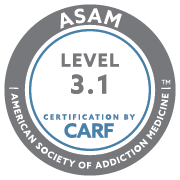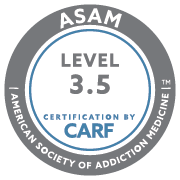Stress can be a major risk factor in the development of an addiction and also a trigger for relapse. This happens when drugs or alcohol are used as a coping strategy to deal with stress or to reduce tension in one’s life.
Unfortunately, stress is all around us whether it be family conflicts, finances or job related. Stress is unavoidable in life and so it is important to understand how you can manage and live with stress, without feeling the need to self-medicate with drugs.
For people in early recovery, time management is an important skill for reducing stress. Taking on too many projects or worrying about assignments that don’t get completed, can be a major source of stress. Focus on the essentials like recovery activities, 12-step meetings or counseling sessions, as you build your new daily schedule. Once you feel comfortable you can begin to add more projects or duties into your schedule.
Another stress management tip is to just share your emotions, frustrations and stressors with a friend, family member, counselor or sponsor. Talking about how you are feeling can help you to focus your thoughts and clear the confusion in your mind. The person you’re talking to may be able to offer advice, provide insights or help you view problems from another perspective. Another option is to try journaling your thoughts and feelings which can help you sort through and organize your thoughts and emotions.
Preparing for stressors in advance can help you avoid potential stress or be prepared to handle it in a way that doesn’t increase your risk of addiction or relapse. Do you know what is mostly likely to cause you stress? Maybe it is a work deadline, a conflict in a relationship, or running late for work or some other event. Putting a plan in place ahead of time can help you be prepared for these events. Maybe it is as simple as waking up 15 minutes early to avoid traffic on your way to work. Or perhaps you need to seek help in prioritizing and managing work projects to avoid missing deadlines. Holidays can be another major source of stress. Do you have a plan in mind to politely decline invitations where you know substance use might occur? Can you plan ahead for gift giving so that you are not stressed financially? Planning ahead is a great tool to help you handle stress that you can foresee.
Often, when people are busy and stressed, they will shorten their amount of sleep or they may struggle to get to sleep at all. Getting a full night’s rest can make a big impact on your mood and help you manage stress. Feeling rested and ready for your day can go a long way towards avoiding stressful situations. If stress is affecting your sleep, it’s important to find a way to reduce those stressors so that you are able to get a full night’s rest.
Deep breathing, meditation and yoga are all ways to help you achieve a state of calm and to focus your thoughts on your body and mind. While each is slightly different, they can all help you reduce stress. Deep breathing can be as easy taking slow deep breaths for five minutes at a time. Yoga brings in a more physical aspect to relaxation, but it helps you become more aware of your thoughts and emotions while leaving you feeling energized and relaxed. If you are new to yoga attending a gym or studio for guided sessions is a great way to get started. There are a variety of meditation practices and some are as simple as taking time to calm your breathing and focus on the present. There are many DVDs, apps and websites available to help you learn how to meditate. Many people find a sense of calm and relaxation from meditation that helps them feel prepared to take on stressful situations.
Exercise is another excellent way to reduce and manage stress. It can help balance the stress hormones in your brain, and regular exercise will flush out the byproducts the body releases during stressful situations. These benefits can help reduce stress near term and help you manage it long term. It doesn’t matter what type of exercise you do; the most important thing is choosing something that you enjoy and not something that feels like an obligation.
Healthy eating is another important piece of stress management. Avoiding caffeine will help you avoid the increase in stress hormones that come along with its consumption. As well, simple sugars and starches can lead to blood sugar spikes that can leave you feeling hungry and irritable. Focusing on a healthy well rounded diet will have you feeling your best and help your body manage stressful situations as they arise.
At Rimrock, we understand the impact that stress can have whether you’re in recovery or still struggling with an addiction. During treatment, we help you develop the skills necessary to manage stress in your life. If you’re interested in more information on our treatment program, our Admissions Department can be reached at 406-248-3175 or 800-227-3953. Our normal admission hours are between 8:00 am and 5:00 pm Mountain Time, Monday through Friday. We do have staff available, however, anytime day or night to take your call.





